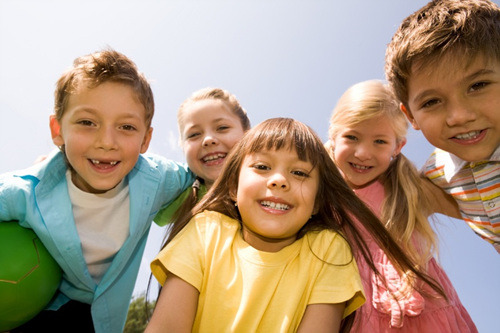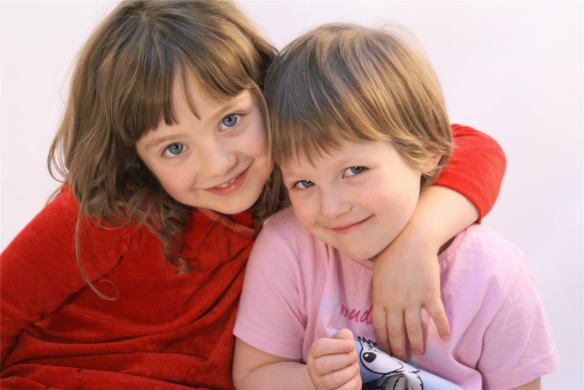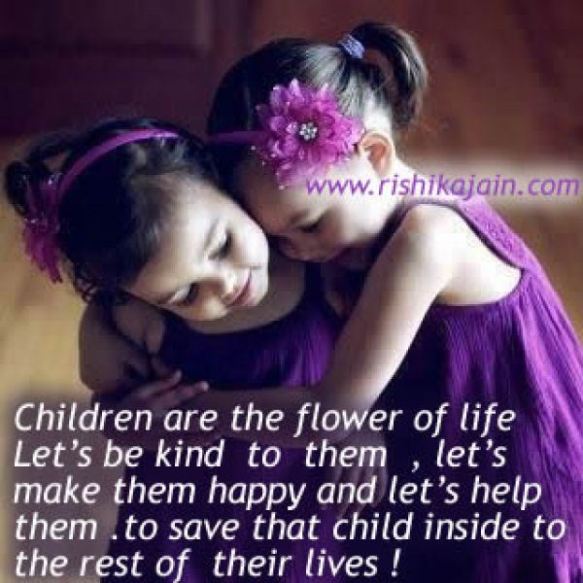Is it good to be a gifted? This may sound like a strange question – of course being gifted is good… isn’t it?
It’s true that kids who score higher on IQ tests will have an advantage academically. After all, these tests are designed to predict school success. The skills tapped by IQ tests, including memory, problem-solving, and language ability are also important for doing well on college placement tests and succeeding in a career. So there’s definitely an upside to being gifted. But how gifted do kids need to be to reap these benefits – and is there a flipside to having a high IQ?
Optimal IQ
It may seem reasonable to believe that the higher our IQ, the better off we are. Yet, it turns out that’s not necessarily true. Those with higher IQs will have an advantage over those with lower IQs – all else being equal – when it comes to ease of learning and having the cognitive skills necessary to succeed in certain careers. However, researchers have found that beyond an IQ of about 120 there is little relationship between IQ and personal achievement. (And please note that an IQ of 120 does not even meet the cutoff score of 130 used by most districts as selection criteria for entrance into a gifted education program.) Beyond this level, achievement appears to be related more to things like creativity, leadership ability, and personal motivation than to IQ. Those with extremely high IQs (in the 145 to 180 range, for example) do no better than those with IQs in the 120s when it comes to career success and creative accomplishments. And having a higher IQ is certainly no guarantee that you’ll zip through life effortlessly accomplishing great things.
I’ve seen this myself. I’ve met many people who don’t appear to be particularly bookish or intellectual, but are very successful in what they do. Then again, I’ve known lots of academic types who have scored extremely high on an IQ test but lack the “people skills,” personal motivation, or whatever it takes to translate their abilities into outward signs of success – a college degree, a rewarding career, a fulfilling family life.
Maybe you’ve noticed this, too. Consider people you know and admire for their accomplishments – those who make everything look easy and always seem to be getting ahead. It’s likely that these people are not all “brainy” types. Rather, most are probably of average intelligence but know how to use their abilities to connect with and lead others, to stay focused on their goals, and to work hard to get what they want.
Of course, that’s not to say that those with an exceptionally high IQ won’t do well in life. Many do, and some of them contribute great things to our society in part because of their unusually high intellectual ability. An exceptionally high IQ may also be useful, or even necessary, in certain professions that require more isolated cerebral types of work, such as theoretical physics or mathematics.
So what is the optimal IQ? It’s arguable, but some would say around 120 and no higher than 145. Why? At this level, you’d reap most of the advantages of having enhanced abilities in some areas but might be spared some of the potential downside of being too “different” from the rest of the world.
The Flipside to Having a High IQ
Just as it’s unfair and unrealistic to make generalized statements about any group of people based on similar traits they share, we shouldn’t oversimplify our view on the effects of giftedness on children. In fact, having a high IQ doesn’t necessarily come with any particular disadvantages. The research in this area is mixed, at best. And much of it is based on interviews or anecdotal evidence, which makes it hard to come to any firm conclusions about the findings.
Yet, all children are susceptible to struggles at some time in their development and gifted children are no different. A common belief is that they are more prone to certain developmental problems due to being perceived as different by others, or because they see themselves as being out of touch with most of their peers. And this makes sense. A primary need of most kids – and maybe, to a lesser degree, of most s as well – is to “fit in.” Anyone who’s been through school understands how important it is to dress like, act like, and be like everyone else. Or at least like everyone else in your own little subgroup. We seem to have a need to be folded into a crowd with whom we can share certain interests – a social connection, an identity. Yet gifted kids are, by definition, different, at least when it comes to certain skills or talents they possess. Yes, giftedness is arguably a positive difference – at least from an perspective – but a difference, nonetheless. For kids and teens, the pressure to conform is often so great that any deviation from the norm can be distressing. We’ve all heard terms like brain, nerd, geek or worse applied to kids who seem too bookish, or too “into” school.
Of course, the potential for social problems is not unique to gifted kids; all children are susceptible to teasing, bullying, or social isolation when they don’t fit in, for whatever reason. The school years can be tough for all children. Gifted kids, though, do share some unique pressures and developmental issues that others may not.
A Disconnect Between the Brain, the Body, and Emotions
Most six-year-olds look, act, and think like six-year-olds. They use six-year-old words, think six-year-old thoughts, and react emotionally like you’d expect a six-year-old to react. Gifted children, however, are often described as showing “asynchronous development.” That is, while much of their development may be typical for their age (their size and emotional reactions, for instance), cognitively they are out of sync. Gifted children’s advanced cognitive skills allow them to process what’s going on around them at a different level than most of their age peers. An outcome of this is a sophisticated and heightened curiosity about what’s going on in the world, and a desire to “fill in the gaps” of their understanding.
All children are curious about the world and how it works. But for most, their curiosity is satisfied by simple, concrete answers that allow them to move on to other thoughts and emotions. They may see s as the “experts” and not feel a need to question or seek elaboration on the answers provided by them. Gifted children, however, may not be satisfied with simple answers. These children often have a need to delve deeper to satisfy their advanced awareness and heightened curiosity.
For example, while most young children who lose a family pet may be satisfied with parental reassurance such as, “Your hamster is going to Heaven to live with his friends,” a gifted child may not be content with such a simplistic response and want more information before moving on: “What is Heaven?,” “Why do we have to die?” “Will you die someday?”
Gifted children may also have a tendency to want to discuss “adult” issues – such as , spirituality, and the afterlife – at a deeper, more involved level than most kids their age. Other potential topics may include uality, birth, money, relationships, and divorce. While discussing these types of issues calmly and openly is not necessarily detrimental to a child, there can be drawbacks. A child who is excessively concerned about these things may become overly focused, frightened, or “grossed out” by knowing too much about issues they lack the life experience or emotional maturity to fully understand.
A seven-year-old whose father loses his job, for instance, may become anxious because he knows enough to understand the potential negative outcomes associated with the lack of a steady income. He may be concerned about the possibility of having to move out of his neighborhood, or not having enough money to get by. A five-year-old who knows “where babies come from” may find the whole subject so fascinating that he shares his expert knowledge with all who will listen.
In short, there is a certain bliss in the innocence of childhood that may be lost on gifted children who are enlightened too quickly concerning life’s mysteries.
Emotional Sensitivity
Gifted children are often thought to be more emotionally perceptive and responsive than their peers. Some people have described them as having finely tuned antennae when it comes to picking up and responding to emotional signals that come from within themselves or from those around them.
Some researchers have reported that gifted children may:
o Be overly empathetic to other people’s problems or situations. They might show a tendency to make the problem their own, and mirror the moods or emotional state of the person they are concerned about.
o Overreact to frustration, rejection, success, or any situation that triggers an emotional response – for example, sobbing over an outwardly minor disappointment.
o Be overly sensitive to criticism or disapproval, or respond strongly to minor suggestions or comments about their work or performances.
o Worry too much about global situations such as poverty, war, and natural disasters over which they have no control.
o Read too much into other people’s comments or body language.
Friendships
Friendships are often based on similarities. We tend to connect with others who are like us in some way. That is not to say that two people need to be clones of each other to bond – differences are often what make a relationship interesting and may be what initially attracts one person to another. But it’s fair to say that long-term relationships are often kept going because the people involved are somehow similar. And arguably, mental similarities are one of the most – if not the most – important ways that people connect and stay connected. We tend to become close with those who think like us, not necessarily people who have the same opinions or outlook, but rather those who understand our ideas and perspectives, share similar interests, and with whom we can carry on a mutually meaningful conversation. Children and teens form meaningful and lasting relationships in much the same way.
A potential problem for gifted children is that they often think in a different way than most of their age peers – those they are likely to spend a great deal of time with. They have the physical appearance and probably the emotional maturity of their classmates, but may have the vocabulary, interests, and reasoning ability of those much older than themselves. They don’t really fit into either group. Consequently, developing meaningful friendships can be more difficult for gifted children, and this problem can become more pronounced as cognitive ability increases. Put another way, the pool of potential same age “mental mates” shrinks as IQ rises.
Self Esteem
Self-esteem can be thought of as the opinion we hold of ourselves. So where do we get this opinion? As children, we begin to develop a mental picture of ourselves in several different areas, including how we look, how we act, how popular we are, and how good we are at learning. This mental picture is formed from early childhood through feedback we get from others and from comparing ourselves to those around us. The picture becomes clearer and more fixed as we get older, since our ideas about who we are get reinforced over time. As we mature, we also develop a concept of an “ideal person,” or how we “ought to be.” These ideas are likely formed through messages received from sources around us like our parents, teachers, peers, and the media.
Our self-esteem, then, comes from comparing our mental picture of who we are to who we think we should be. Our feelings about ourselves can differ greatly according to what area of our lives we are considering and how we measure up to the ideal.
While studies show that many gifted children have high global self-esteem (how they feel about themselves in general) and high self-esteem when it comes to academics, it is also known that they are not immune to having poor opinions about themselves. Self esteem issues may be particularly troublesome for gifted children who are prone to perfectionism – the desire to do everything just right before one can be satisfied with the outcome. Realizing their own potential and capabilities, these kids may get the feeling that they should be able to do just about anything, and then become frustrated when they don’t perform up to their own expectations. For example, getting less than perfect grades, not making the varsity sports team, or not winning an award for the best science project may make the gifted child feel that he has let himself down. Self-esteem may also be negatively affected when gifted kids feel that they are not measuring up to other high-achieving students, or to mentors whom they see as role s or intellectual equals.
Depression
Gifted children who are not able to live up to their own unrealistic or perfectionist expectations, or those who feel alienated from the rest of the world because of their intellectual differences, may develop feelings of sadness or depression. This is particularly true for the highly gifted child or teen who may develop the sense that the world they live in is a foreign land where everyone thinks and acts differently than they do. As they get older, these children may begin to question the meaning of a world that is seemingly run by those whose values and interests are so different from their own.
Becoming caught up in academic competitiveness can also lead to depression and other serious consequences. It is known, for instance, that attempts occur more
frequently among young people who excel academically, are highly creative, and attend highly competitive schools.
School
The very traits that help gifted children excel in learning can make it difficult for them to participate in many school programs.
For example:
o Because they are usually able to complete tasks quickly, they may become disinterested in a subject once they feel they have mastered it, and then begin to tune out the teacher while they move on to different things in their own minds. These children may be perceived as unfocussed or as “daydreamers.”
o They may be more focused on the big idea, rather than the small details of a school task or subject. The organization of their school work may appear to be lacking and attention to detail may be missing. They may be perceived as disorganized, inattentive, or defiant.
o They may not need as much structure and teacher guidance as most and prefer to guide their own learning and move at their own pace. Teachers may become frustrated with students who are always moving ahead or getting “off topic.”
o Because they learn and complete work at such a fast pace they could spend much of their school day with little to do or nothing to engage their attention. Some become bored, apathetic, discouraged, or rebellious.
o Their thoughts may come faster than they can write – so there is often a disconnect between how they think and what they produce on paper. This could lead a teacher to group gifted children with students of much lower ability, thus frustrating the child further.
Teachers that are not skilled at adapting their instruction to meet the needs of gifted learners may feel threatened by how quickly the child learns, or by how much they know. Such teachers may try to make the gifted child conform to the pace of the classroom through reprimands or discipline techniques that create hard feelings or a poor working relationship between the teacher and the student.
Ways Kids Cope
Gifted children are as diverse a group as any other, and no two children are alike. How they navigate through the social world and cope with the stresses of growing up may have more to do with individual personality traits, or the type of emotional support they get from others, than with their IQ.
Yet there are some common themes when it comes to how gifted kids cope. Because of the social isolation and negative feedback they may encounter, there is some evidence that, as they get older and have more of these experiences, some gifted children start to downplay their abilities, becoming guarded or holding back when they are around children their own age. Others may disguise their abilities in other ways – like focusing on nonacademic-related talents, or simply choosing to isolate themselves from others kids, preferring to be alone or choosing the company of s.
Many though, as they mature and gain the insight that comes from experience and maturity, learn to accept and appreciate their differences without any long-term negative consequences.
Whether or not a child is dealing with any of the issues outlined in this chapter, parents can help their kids through the school years by:
o Being there to listen, understand, and support them emotionally when they are going through a stressful period.
o Providing them with opportunities to develop and explore their interests and connect with others who hold similar interests.
o Avoiding pushing them to excel or compete – or excessively praising them for their accomplishments.
o Encouraging fun, playful activities and downtime.
Most importantly, research (and common sense) tells us that all children benefit from having at least one caring, supportive in their lives who provides structure, consistency, and a sense of unconditional love, warmth, and encouragement.
Reframing the “Problem”
Again, the research is mixed when it comes to gifted kids and social adjustment. Being gifted certainly does not mean that a child will have a rough time growing up. Many of the potential negative effects of a high IQ may never arise, particularly for those children who measure in that “optimal” range of around 120 to 145. Many studies have, in fact, shown that most gifted children are well-adjusted and have no more social problems than most.
It’s also true that the denser and more efficient neural connections that some believe are related to gifted children’s emotional sensitivity and other issues can also help them in social relationships. Many of the same characteristics that seem to create problems for some gifted children can lead to positive outcomes in others – and many of the possible drawbacks associated with giftedness can also be viewed as potential advantages.
For instance, highly developed sensitivity and emotionality may help gifted children develop social insight, enhance their capacity to understand and connect with others, and boost their ability to adapt to different social groups. Instead of causing them to overreact or have melt-downs over little things, being highly sensitive may allow gifted children to be more responsive to others’ needs, and give them an advantage in reading others’ body language, feelings, and emotions.
Similarly, having fewer social contacts, or true friends, could certainly be viewed as a negative aspect of giftedness. But for some children it may just mean that they are more discerning when it comes to choosing who they hang out with. And preferring to be alone at times does not necessarily mean the child is suffering from social isolation. Gifted children are often highly introspective, and choose to be alone to develop their gifts through solitary activities.
Other gifted characteristics with possible negative implications, such as boredom with school routines, bossiness, and questioning of authority, can also be viewed as early signs of an independent thinker or a natural leader.
Editor’s Note: David Palmer’s new book, Parents’ Guide to IQ Testing and Gifted Education: All You Need to Know to Make the Right Decisions for Your Child (2006) is available online and through Barnes and Noble and other fine book sellers.










